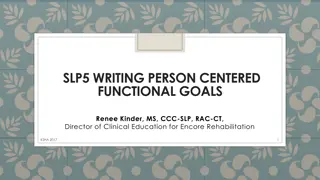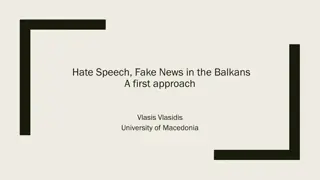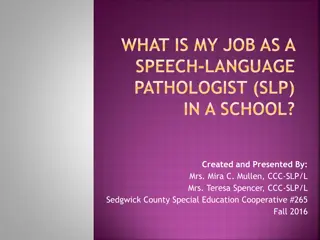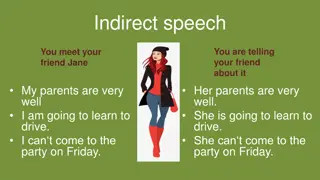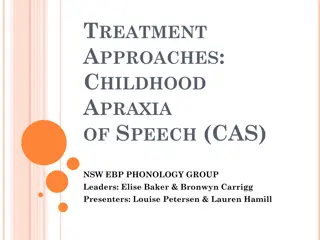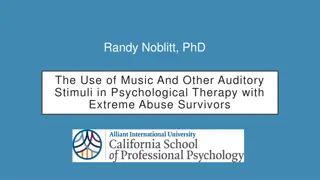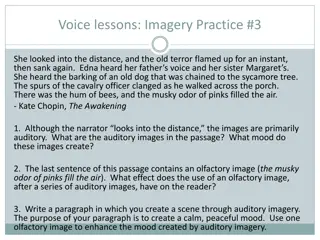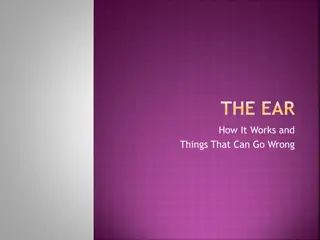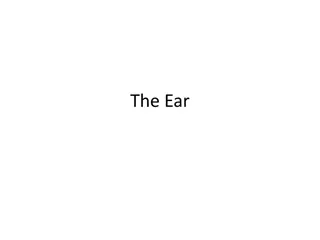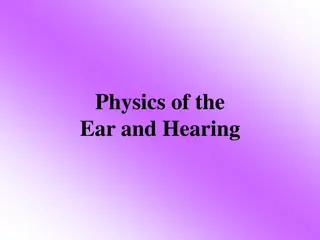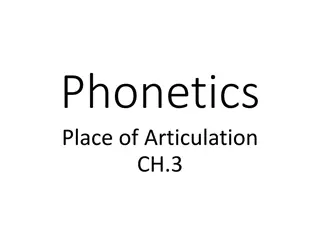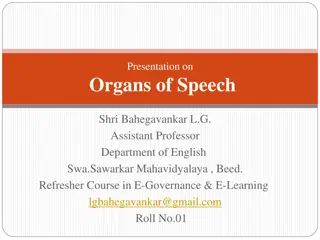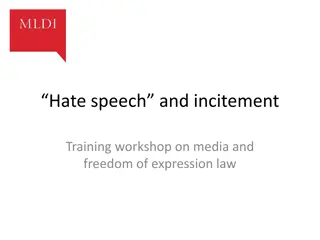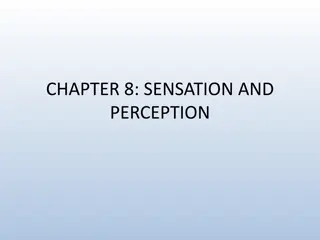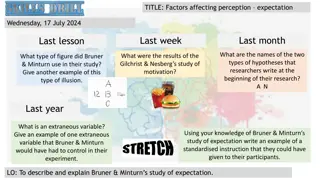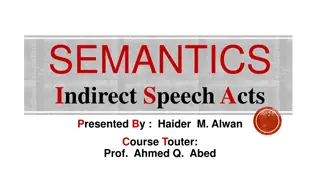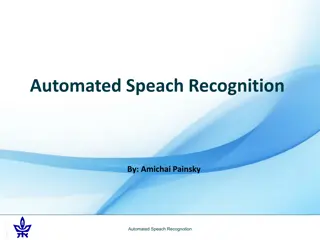Speech Perception and Mishearing: Exploring Auditory Illusions
This study delves into the fascinating realm of speech perception and mishearing, investigating how different pitches and physical differences in spoken language can lead to auditory illusions. From examining mondegreens to proposing hypotheses on age and gender differences in misinterpretations, this research aims to shed light on the complexities of how we hear and understand sounds. The experiment seeks to uncover which demographic groups are more prone to mishearing certain words or phrases.
Download Presentation

Please find below an Image/Link to download the presentation.
The content on the website is provided AS IS for your information and personal use only. It may not be sold, licensed, or shared on other websites without obtaining consent from the author. Download presentation by click this link. If you encounter any issues during the download, it is possible that the publisher has removed the file from their server.
E N D
Presentation Transcript
13. Hearing Chris Michos Team Raptou
Contents Problem to be invented Problem to be investigated Theory Hypothesis Experiment Results Conclusions References
Problem to be invented Each speaker can pronounce a vowel on several pitches, yet a listener is likely to recognize the phoneme (e.g. /o:/ or /u:/). Astonishing auditory illusions (e.g. Yanny and Laurel), so called mondegreens, and experiences of persons with poor hearing demonstrate nevertheless that listeners perceive sounds, words and phrases differently. Propose a problem concerning speech perception, mishearing, or physical differences between sounds of spoken language.
Problem to be investigated Different people may hear certain phrases differently. Propose which people are more likely to mishear words or phrases.
Mondegreens A mondegreen is a mishearing or misinterpretation of a phrase in a way that gives it a new meaning. Mondegreens are most often created by a person listening to a poem or a song; the listener, being unable to clearly hear a lyric, substitutes words that sound similar and make some kind of sense American writer Sylvia Wright coined the term in 1954, writing that as a girl, when her mother read to her from Percy's Reliques, she had misheard the lyric "layd him on the green" in the fourth line of the Scottish ballad "The Bonny Earl of Murray" as "Lady Mondegreen".
Why mondegreens happen People are more likely to notice what they expect than things not part of their everyday experiences. Similarly, one may mistake an unfamiliar stimulus for a familiar and more plausible version. Also, expecting to hear something will likely make you hear it There are also letters and letters compinations that may be confused with each other because of the frequency that we use for these letters p/b, f/v, t/d, m/n, o/ou
Hypothesis Older people will make the most mistakes People closer to the age of 19 will have better hearing Males will make more mistakes on consonants Female will make more mistakes on vowels
Experiment Materials : mobile device with an application for recording
Experiment Variables: Different letters Constants : People who were tested Place Time
Participants 6 people of age:s 10(female) , 14(male) , 18(female) ,43(female) ,45(male),67(male)
Results of the Yanny/Laurel experiment Age Word Males 10 Yanny 14 Laurel 18 Laurel 43 Yanny Females 45 Yanny 67 Yanny
o/ou experiment Age Letter Males 10 O/ou 14 O/ou 18 A/ou 43 A/ou Females 45 O/ou 67 O/ou
M/N experiment Males Age Letter 10 M/n 14 M/n 18 M/n 43 M/n Females 45 N/n 67 M/m
U/O experiment Males Age Letter 10 U/o 14 U/o 18 U/u 43 U/u Females 45 U/o 67 O/o
T/D experiment Age Letter 10 T/d 14 T/d 18 T/d 43 T/t 45 T/d 67 T/t
Individual results(1) 10 14 18
Individual results(2) 43 45 67
Errors Since I used the same recordings, done by me, for everyone, I already knew what the recording was supposed to say. Another potential error: Some people might had guessed the second letter in each test
Conclusions The oldest person did make the most mistakes People of an age close to 19 made the least mistakes Females made the most mistakes on vowels Males made most mistakes on consonants
Thank you for your attention




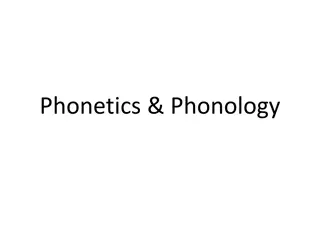
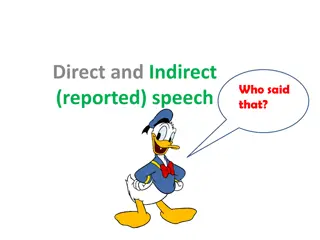

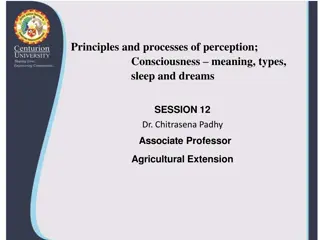

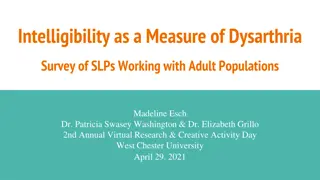
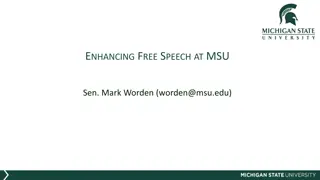
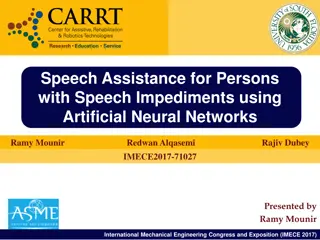
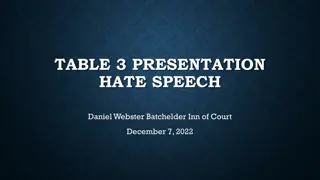


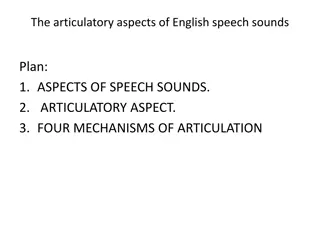

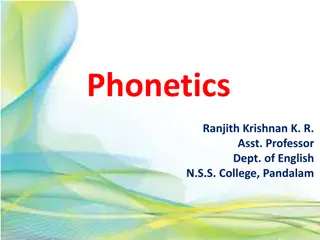
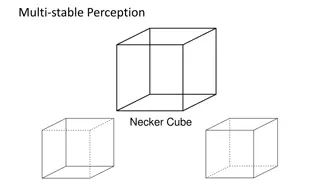
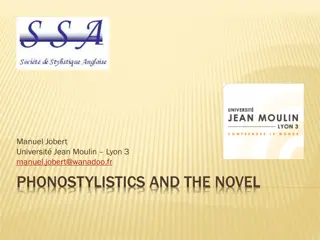
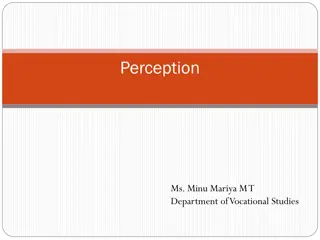
![Prevention and Combating of Hate Crimes and Hate Speech Bill [B.9B.2018]](/thumb/60513/prevention-and-combating-of-hate-crimes-and-hate-speech-bill-b-9b-2018.jpg)
